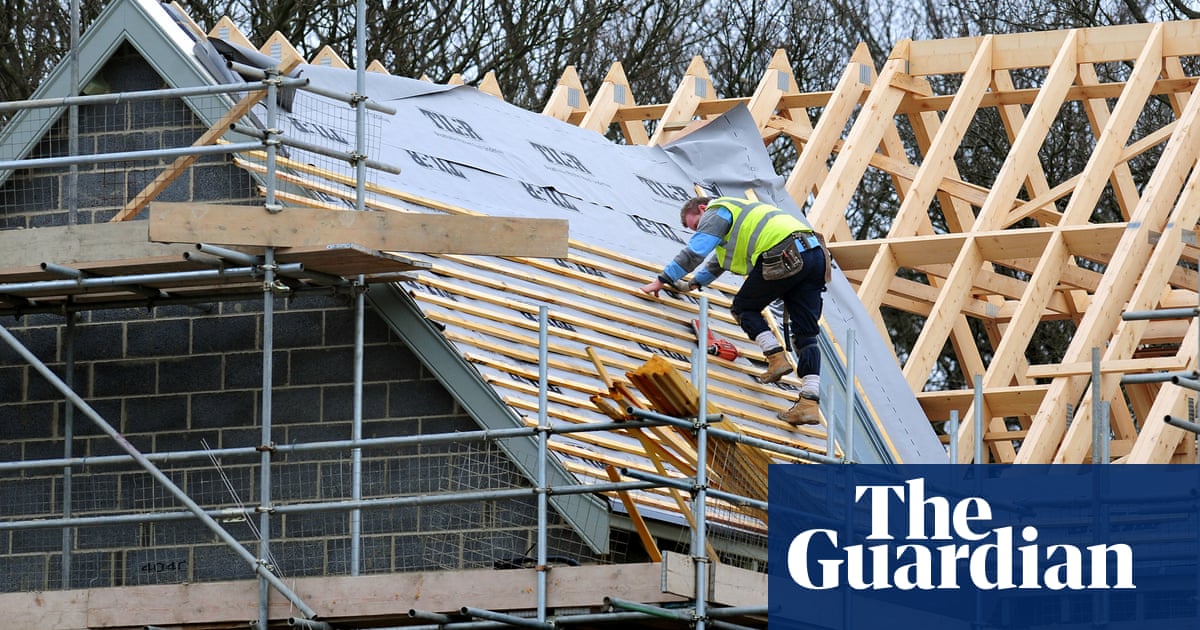
Political parties and wildlife groups are gearing up to fight the UK government’s renewed plans to scrap pollution rules for housebuilders.
The environment secretary, Thérèse Coffey, has announced that a new bill is in the works, with Rishi Sunak hoping to push it through parliament in the limited time he has left before the general election.
This comes as it was revealed that the government will delay new environmental laws that require housebuilders in England to improve local nature and wildlife habitats when they build a development in existing green space.
Earlier this month, peers delivered an astonishing defeat to the government when they voted against amendments to the levelling up bill, which would have forced local authorities to turn a blind eye to pollution from new developments.
A separate bill tabled by the government would allow planning officials to ignore the extra pollution caused by sewage from new homes in sensitive areas and runoff from construction sites, with the taxpayer paying to offset the damage to the environment instead.
There will be a coalition of MPs in the House of Commons who will unite to try to defeat the new law.
The Labour party continues to oppose the government’s plans, and has called for further evidence and consultation before any rules are changed.
Matthew Pennycook, the shadow housing and planning minister, said: “These reckless proposals were defeated in the Lords by a combination of peers from all parties, including those on the Conservative benches. Ministers should abandon their flawed plan and instead get around the table to agree a solution that builds the homes we need without further polluting our rivers and precious ecosystems.”
The Lib Dem environment spokesperson, Tim Farron, told the Guardian: “The government failed to get its nutrient neutrality changes into the levelling up bill thanks to the hard work of Liberal Democrats.
“We are disappointed that they can’t take no for an answer and instead of thinking again they’ll continue to undermine our environment. Liberal Democrats in parliament will continue to oppose these changes in both the commons and the Lords.”
Peers will also try to oppose the bill again when it comes to them. Jenny Jones, the Green peer who led the rebellion against the last amendment, said: “If the prime minister wants to use up precious parliamentary time and make this an issue in the run-up to the general election, then he really must be desperate to get those big party donations from property developers flowing again.
“If the measure is in the upcoming king’s speech then the best that could happen is for the Lords to throw the entire bill out.”
There are other ways political parties are trying to stop the bill from coming into practice. A spokesperson for the Green party said their local councillors were trying to get local authorities to oppose the idea.
Environmental experts said it was an inappropriate priority for a government running out of time. Ruth Chambers, from the Greener UK coalition, said: “If ministers are intent on proposing such a bill, they should look at the rejection of their previous proposals and consult nature and housing experts before publishing any new measures. There is overwhelming public support for cleaning up our rivers, not worsening their pollution.”
Elliot Chapman-Jones, the head of public affairs at the Wildlife Trusts, added: “Giving housebuilders a licence to pollute rivers with impunity should not be a priority in the king’s speech. There are already worries that the government’s agenda is too packed to honour important existing promises such as the bill to ban the sale of peat – so why is it persisting in efforts to instead push for weakening environmental rules at a time when the public, and the House of Lords, are so clearly upset about the quality of our rivers?”
Meanwhile, government officials admitted there would be a delay to proposed rules called “biodiversity net gain”. The principle is that developers cannot destroy the local environment and any development has to give extra provisions for nature. The rules, which state that building projects must result in 10% net gain, were supposed to be introduced in 2023 and would have provided funding for many wildlife charities from developers’ profits.
Sources at the Department for Environment, Food and Rural Affairs and the Department for Levelling Up, Housing and Communities confirmed the delay and said the legislation should come into force in the new year.
Last week, the Lords’ built environment committee said the government was “failing to deliver for either side” in its approach to competing demands for new homes and environmental protection.












